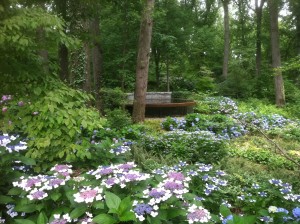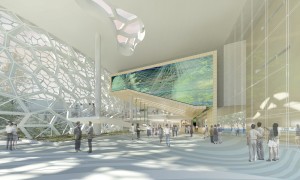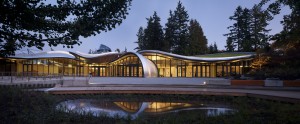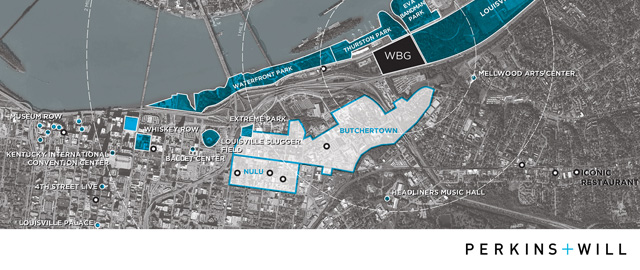Botanica has selected design firm Perkins+Will to lead the master planning process for the future botanical gardens. Their work will create the visual design of the landscape, gardens, architecture and other aspects of the future Waterfront Botanical Gardens’ design.

If you look at their past work, you can get a clear sense of where Louisville’s garden is headed. Their designs have an inspiring, contemporary feel – the kind of environments you’d expect to see in many of the top cities throughout the world.
Some of the P+W projects that inspired our decision include the VanDusen Botanical Garden Visitor Centre in Vancouver, their work at the Atlanta Botanical Gardens, and the Shanghai Natural History Museum.
“This project is not only about creating a unique attraction for visitors of all ages, but also about transforming a degraded site into a beautiful public space,” said Leo Alvarez, Principal at Perkins+Will and Landscape Architect for the project. “It’s a great story of environmental stewardship and transformative design – the rare type of project to which we as designers aspire.”

Botanica’s Board of Directors made the selection of Perkins+Will as the result of a multi-step selection process. Prospective firms were evaluated based on their experience with botanical gardens, projects of comparable complexity, and design aesthetic. Four finalists were invited to submit proposals. Botanica’s board voted unanimously to select Perkins+Will for the project.
Landscape designer Leonardo Alvarez and architect Ralph Johnson will lead the Perkins+Will design team for the project. The team will also include two Louisville natives, Alexander Stewart and Matthew Kuhl, as key members. See their work:
- Leonardo Alvarez, landscape architect
- Ralph Johnson, architect
“It has been a long time dream of mine to come home and give back to the community that raised me,” said Zan Stewart, Project Manager and Landscape Architect for Perkins+Will. “Planning for the Waterfront Botanical Garden is an opportunity to make a profound difference in Louisville, and it’s a responsibility that neither I, nor my team, take lightly.”

The design process includes design analysis of the existing conditions of the site, community and stakeholder input, developing several design concept alternatives, and development of the final design to create the Master Plan.
The Master Planning process is planned to begin later this year. It is expected to take roughly five months to complete.

